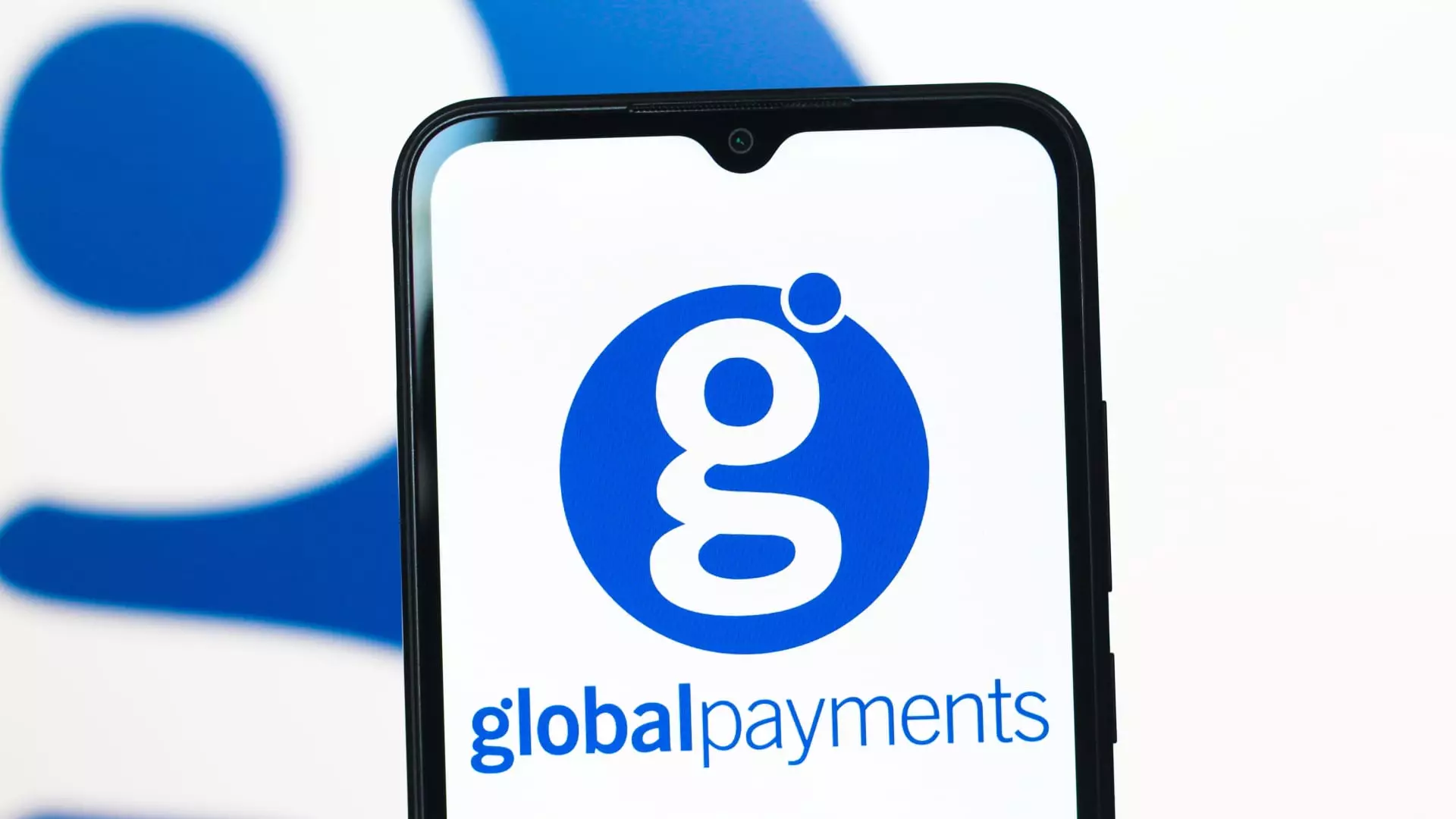Global Payments, a significant player in the global payments technology landscape, epitomizes the volatility and the strategic contestation that characterizes modern financial technology giants. With a valuation nearing $20 billion and an extensive suite of services ranging from merchant solutions to issuer technologies, the company has long been a staple in facilitating seamless transactions for countless businesses worldwide. However, beneath this impressive facade lies a fragile balance—one that is increasingly vulnerable to external pressures, particularly from activist shareholders like Elliott Management.
Activist investors possess a unique, often controversial power: they challenge executive decisions, push for governance reforms, and advocate for strategic shifts to unlock shareholder value. While such endeavors can inject much-needed discipline and fresh perspectives, they also carry inherent risks. In the case of Global Payments, Elliott’s intervention signals a brewing storm. The activist is spotlighting issues like valuation, strategic missteps, and execution risks—particularly surrounding the ill-fated Worldpay acquisition. Essentially, Elliott perceives that the company’s current trajectory is unsustainable and demands a radical rewiring of its governance and strategy.
This tension reflects a broader narrative—the struggle between mature corporations content with incremental innovation and the disruptors aiming to overhaul market dynamics. For Global Payments, the question isn’t just whether activist intervention is warranted, but if it will be a catalyst for renewal or a catalyst for chaos.
The Strategic Slap in the Face: Misfired Acquisitions and Market Disillusionment
The recent history of Global Payments reveals a critical vulnerability: questionable acquisitions and poor integration. The company’s decision to pursue the $24.25 billion acquisition of Worldpay—an enterprise value widely seen as excessive at 10.5 times EBITDA—has been a turning point. Investors, who had been content with steady growth, were stunned by the abrupt decline in share value post-announcement, dropping approximately 17%. What’s more telling is the market’s skepticism about the projected synergies, with many viewing them as overly optimistic or unattainable.
This scenario underscores the perils of aggressive growth through large acquisitions in a sector already facing razor-thin margins and fierce competition. Previous integrations, like TSYS, have shown that Global Payments struggles to absorb and realize the promised efficiencies of such deals. Moreover, the broader payment industry has evolved rapidly, with disruptors such as Stripe, Shopify, and Fiserv capturing market share from traditional players. These companies innovate at a pace Global Payments seems too slow to match.
While management claims the Worldpay acquisition will eventually generate substantial cost and revenue synergies, market confidence remains elusive. The core problem isn’t just the quality of the acquisition but the company’s ability to execute on its commitments amid industry upheaval. This skepticism is amplified by the company’s declining valuation, both reflecting market doubt and the underlying operational challenges.
Activism as a Double-Edged Sword: Reform or Disruption?
Elliott’s entry into the debate over Global Payments is motivated by a desire to reshape its strategic and governance framework. The activist sees opportunities to instill accountability at the board level, prevent management from repeating past mistakes, and ultimately restore investor confidence. The proposal includes a reconfigured board comprising members with expertise in large-scale M&A integration, strategic oversight, and governance discipline.
However, activism in large, complex corporations is a double-edged sword. On one hand, it can accelerate necessary reforms, curb complacency, and push management to deliver on its promises. On the other hand, if mismanaged, it risks creating instability, distracting leadership at a critical juncture, or forcing strategic shifts that could unduly destabilize the business.
In the case of Global Payments, the strategic importance of the upcoming merger and the company’s execution risk make the activist’s influence potentially transformative, yes—but also perilous. A change in leadership style, stricter oversight, and a focus on deleveraging could stabilize the company. Conversely, overly aggressive moves or a focus on short-term pressures may undermine long-term strategic goals.
This political dance at the boardroom level highlights the central question: will activist involvement be the spark that refocuses Global Payments on sustainable growth, or will it serve as a disruptive force that diverts critical resources and attention from vital strategic initiatives?
The Future Under Scrutiny: Will Governance Reform Drive Value?
The real test for Global Payments lies in its ability to deliver on the promises of the activist narrative. Improving execution and restoring investor trust will require a disciplined approach—one that emphasizes strategic clarity, financial discipline, and operational excellence. A reconstituted board with seasoned members capable of overseeing large-scale integration projects could serve as that vital change agent.
Yet, the overarching challenge is not just governance but also market positioning. As new players and fintech disruptors redefine consumer and business payments, Global Payments must adapt swiftly or face further erosion of market share. The proposed board overhaul and strategic shifts could be the benchmarks that determine whether the company can navigate these turbulent waters or fall behind.
While critics may worry that activism could induce rash strategic pivots, the reality is that without significant reform, Global Payments risks becoming another historical example of a once-prominent industry player slipping into irrelevance. For now, the nimbleness of its leadership—and whether it embraces necessary change—will be the key to steering its future in a highly competitive landscape.
In short, activist investors like Elliott Management are pushing a narrative of urgent reform at Global Payments. Whether this transformative push ends as a renaissance or a derailment depends on the company’s willingness to embrace accountability, execute strategic plans effectively, and adapt to a rapidly changing industry. For those aligned with liberal-centric center-right ideals—favoring responsible corporate governance, strategic discipline, and shareholder protection—this scenario presents both a challenge and an opportunity: to elevate a corporate titan, or risk losing its relevance altogether.

